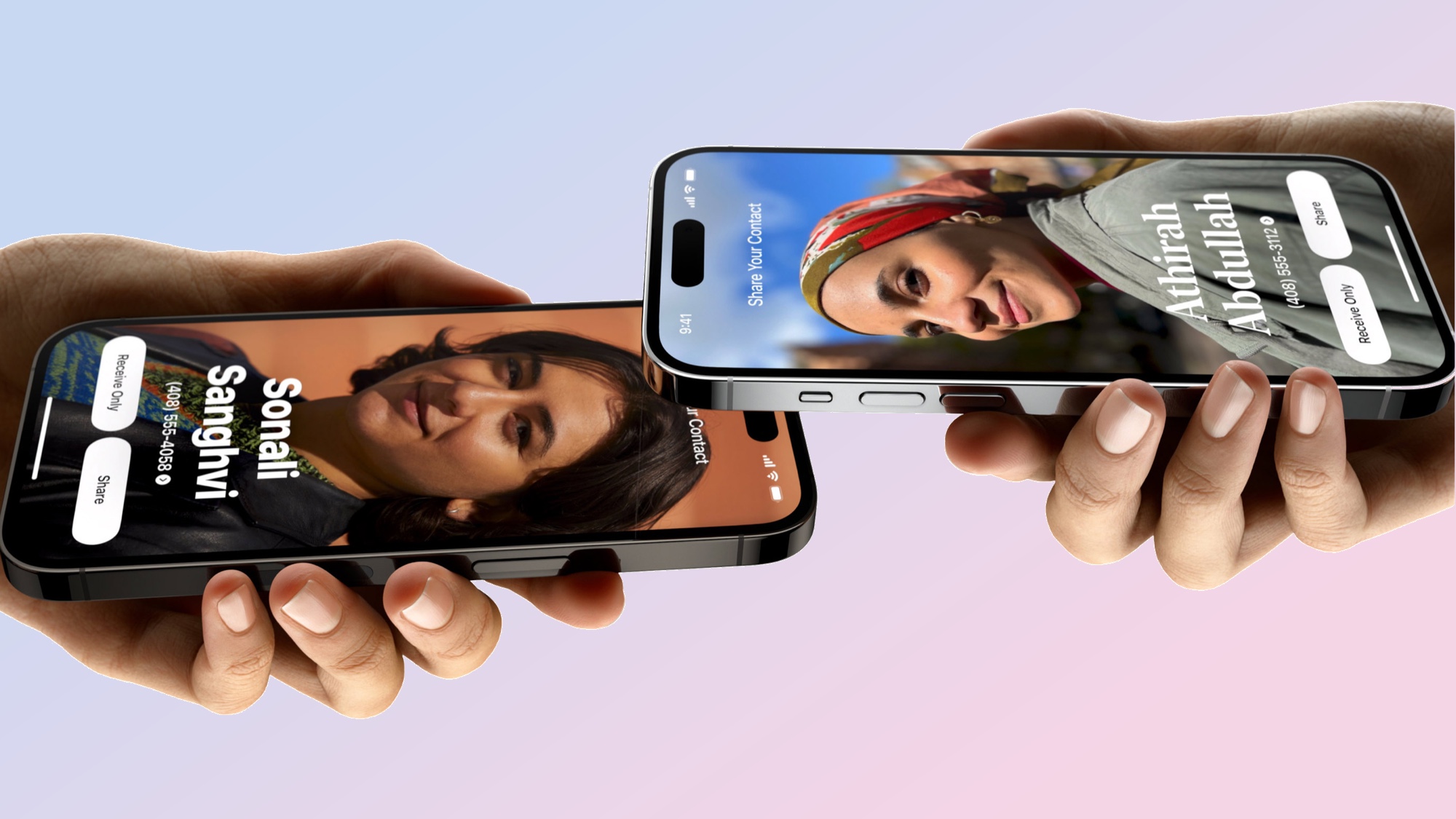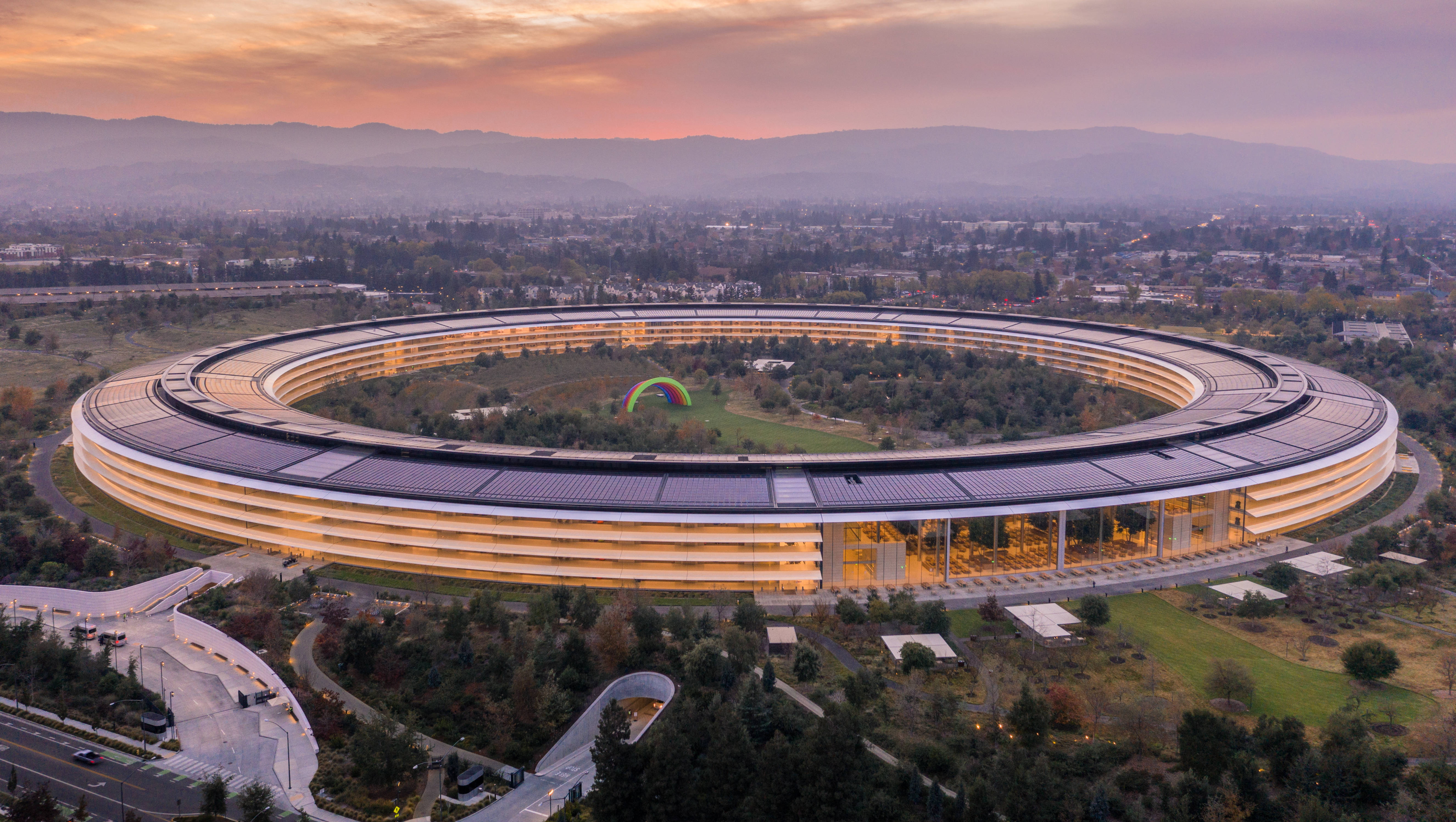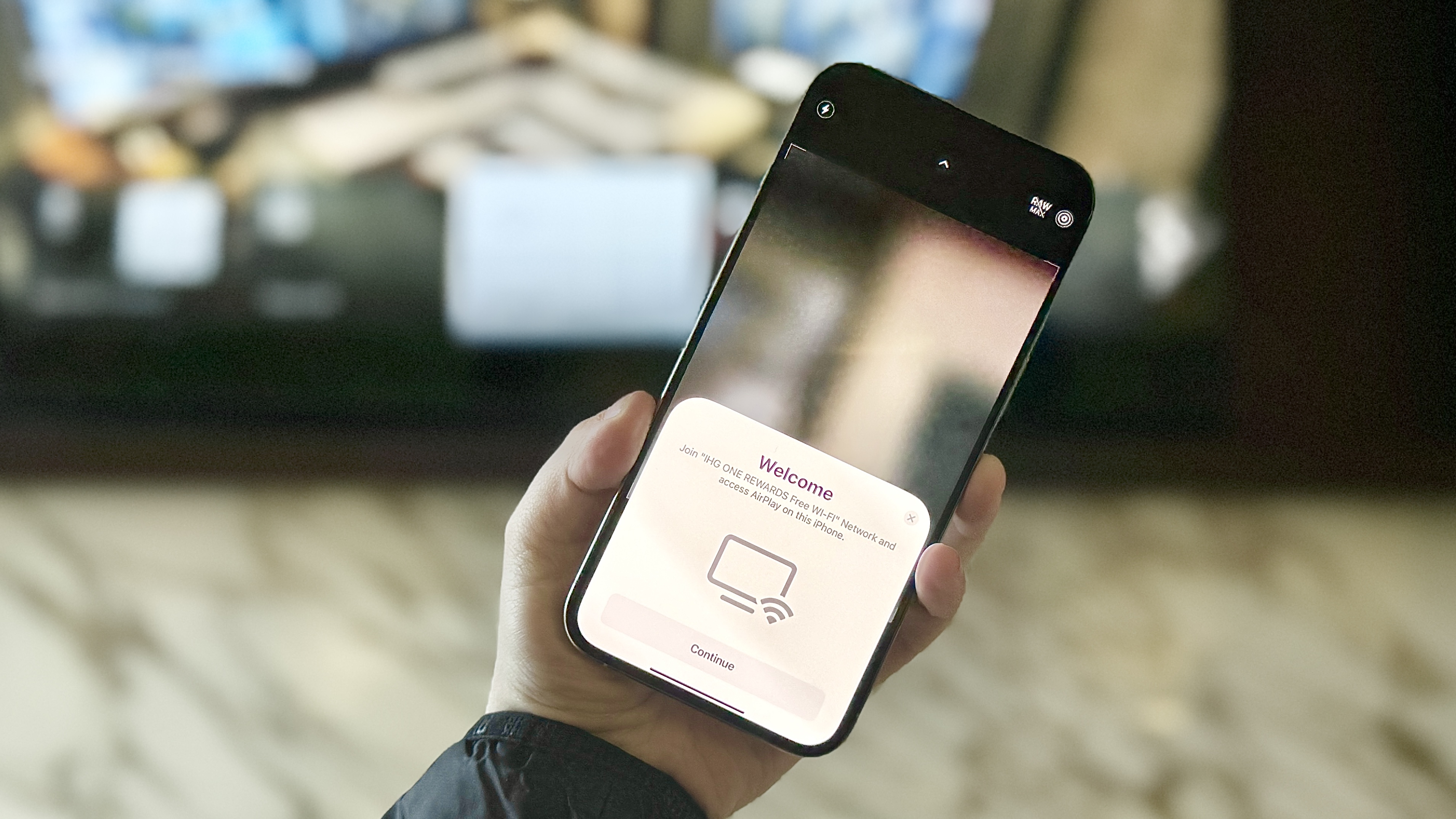
Apple is set to have another run-in with the European Union after the bloc released a new Digital Markets Act (DMA) proposal suggesting the company allow rivals access to proprietary technology, including AirDrop and AirPlay.
In a document for public consultation [PDF], the EU stated its case that Apple should implement “effective interoperability” on a number of iOS-only features including iOS notifications, Background Execution and automatic audio switching. But it’s the consumer-facing features related to data transfer that will cause Apple the biggest headache.
AirDrop (a method of wirelessly moving files between Apple devices) and AirPlay (a way of wirelessly streaming audio and video content to compatible TVs, set-top boxes and other devices) are both extremely convenient to use and strong selling points that keep people firmly in the Apple ecosystem.
If you’ve bought, say, one of the best soundbars specifically because it has the familiar AirPlay logo on the box, then you’ll probably want to keep buying iPhones so you don’t have to look for another.
That is, of course, exactly why the European Union is looking at this. Such proprietary technology is uncompetitive, the reasoning goes, and thus gives Apple and its iPhones an unfair advantage over Android. If the law change goes ahead, you could theoretically see Android devices with AirDrop and AirPlay buttons, giving users less of a reason to stick with Apple in future.
Apple fights back

But Apple isn’t taking this lying down, and has already written its first rebuttal — a five-page document [PDF] which argues that the change would require users to “open their devices—and their most sensitive data—to companies with a track record of violating their privacy.”
Ironically for a document entitled “It’s getting personal”, the company then namechecks one particular company: Meta.
“No company has made more interoperability requests of Apple than Meta,” the document says, claiming the company is overstepping actual needs and “seeking to alter functionality in a way that raises concerns about the privacy and security of users”. Meta, it alleges, has requested to access AirPlay, App Intents, CarPlay, Continuity Camera, iPhone Mirroring, Messaging and at least four other technologies.
Apple continues: “If Apple were to have to grant all of these requests, Facebook, Instagram, and WhatsApp could enable Meta to read on a user’s device all of their messages and emails, see every phone call they make or receive, track every app that they use, scan all of their photos, look at their files and calendar events, log all of their passwords, and more.
“This is data that Apple itself has chosen not to access in order to provide the strongest possible protection to users.”
Analysis: The EU is an effective opponent, but privacy is a strong defence

Apple’s quick response is instructive. The company knows the EU is one of the few bodies with the power to make companies change their business practices. Unlike individual governments, it’s extremely hard to lobby effectively, as its decisions are ultimately undertaken by delegates from 27 individual member states.
Media tycoon Rupert Murdoch was once reportedly asked to explain his antipathy to the bloc. “That’s easy,” the Fox owner allegedly replied. “When I go into Downing Street they do what I say; when I go to Brussels they take no notice.” That’s been Apple’s recent experience too. Past EU decisions simply can’t be resisted — not if it doesn’t want to lose $42 billion of business a year, anyway.
That’s why it grumbled a lot about forcing USB-C on its users and allowing third-party app stores, but ultimately capitulated on both. In the case of the latter, this is EU only, and it’s not clear whether Apple would try and keep theoretical third-party AirPlay and AirDrop compatibility geofenced if it can.
But Apple has a stronger defence here than it did on USB-C, and by emphasizing the privacy implications, the company may get a more sympathetic hearing from EU decision-makers.
Apple has a stronger defence here than it did on USB-C, and by emphasizing the privacy implications, the company may get a more sympathetic hearing from EU decision-makers.
Privacy was, after all, believed to be the reason why Meta’s Threads didn’t launch in the EU in July 2023, and if Apple can make the case that anti-competitive legislation could have unintended consequences to user protections, then the laws could be diluted or abandoned completely.
That could be seen as a cynical ploy: Apple no doubt benefits from its own proprietary technology that works well and keeps people buying its products.
But the privacy point remains a good one — unlike USB-C, which was a fairly straightforward win for consumers, the pros and cons of forcing Apple to open up its technology to others is a lot less clear-cut.







